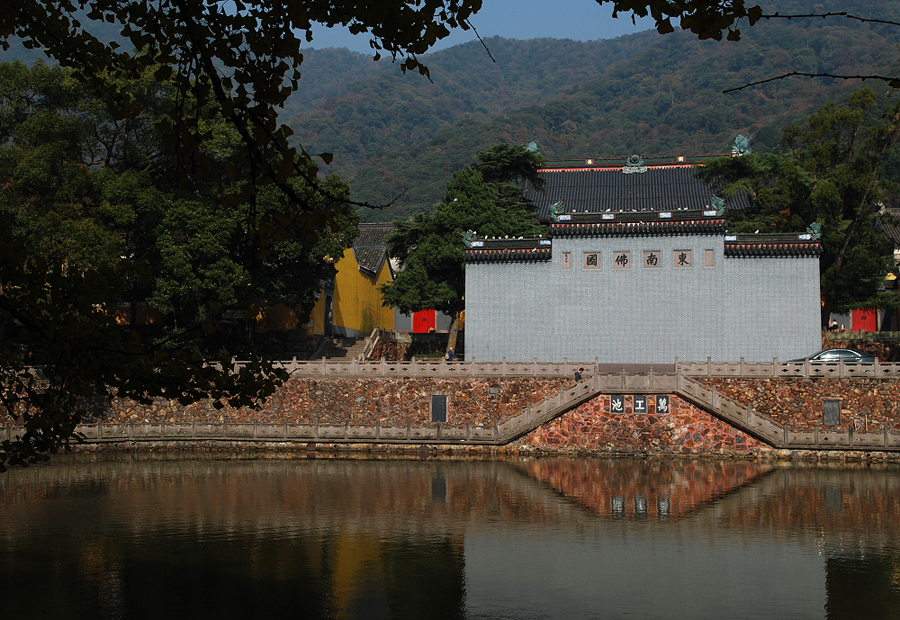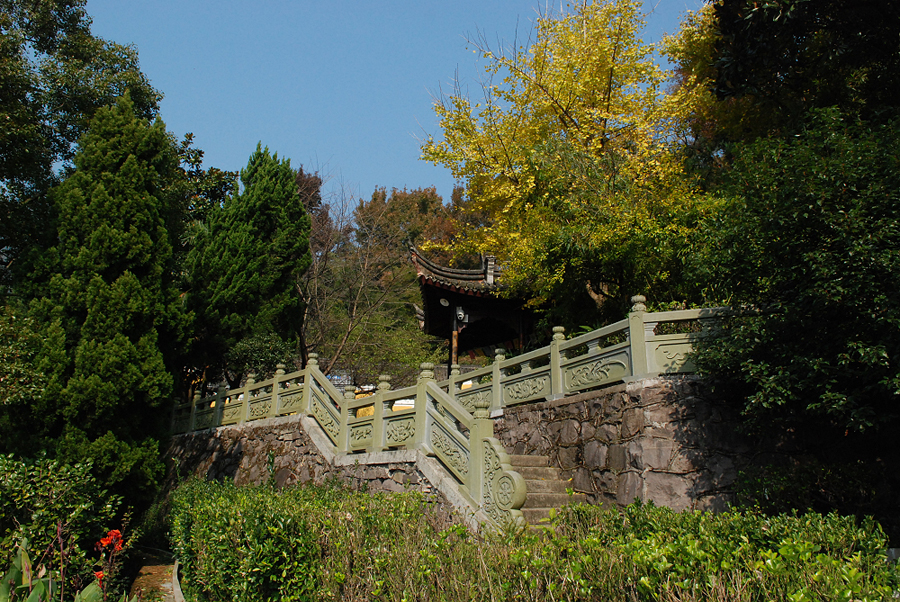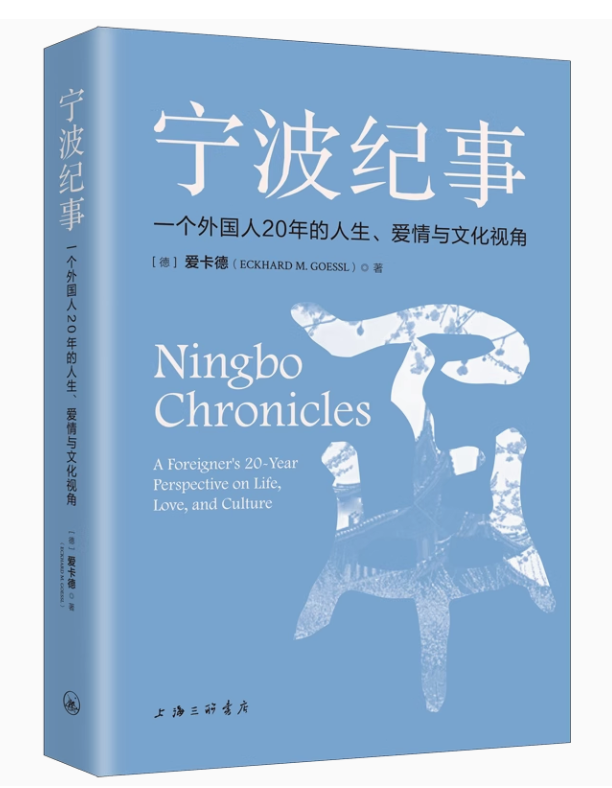- Details
-
Category: Ningbo District
-
Published: Friday, 26 April 2013 11:47
Norfolk City Manager Marcus Jones was in Ningbo China to participate in the signing of the Friendship City Agreement between the City of Norfolk and the Norfolk Sister City Association with the Ningbo-Beilun District and Ningbo Economic and Technical Development Zone of China.
The agreement builds sustainable educational, cultural and economic development relationships. Ningbo-Beilun and Norfolk are both home to active ports. The agreement is the first with a strong emphasis on economic development. It is one step in the process to become a Sister City.
Jone’s five day trip included meetings with Gov. Bob McDonnell who was also in Ningbo as part of the Governor’s economic development and job creation trip to California and Asia.
In May 2012, a delegation from Ningbo visited Norfolk. NSCA presented their mission and the relationships with Norfolk’s nine sister cities, which evolved into a budding friendship sister city relationship, according to a press release from the city. The Norfolk mattress company, Paramount Sleep, exports its product directly to Ningbo. The Virginia Port Authority supports the desire to further this relationship.
- Details
-
Category: Ningbo District
-
Published: Friday, 26 April 2013 11:45
Tengtou Village, arguably the best village of China, is worth a visit to discover its rustic and environmentally friendly atmosphere and to get a taste of the bucolic life. Near Ningbo City, it has been recognized by the United Nations for its ecological care and was on display at the Expo 2010 Shanghai, the largest international world fair.Tengtou's charm lies in what makes it a modern village without industrialization. The tourism and environmental protection is mutually beneficial. Power is clean and recyclable and the cultural relics are well-preserved.
Summer, when the fruits are fresh and ripe, is a good time to visit the village. The experience of seeing and taking part in rural production methods is another highlight for Tengtou visitors. The well-preserved stone windows, furniture and local relics dating back to the Ming Dynasty (1368-1644) are the main draws to the village.[Chinatengtou]

Read more: Tengtou Village in China's Ningbo
- Details
-
Category: On The Campus
-
Published: Thursday, 25 April 2013 08:22
Ningbo could soon be benefitting from increased use of smart technology, designed to make residents’ everyday lives easier, thanks to a recently-launched partnership.
The University of Nottingham Ningbo China (UNNC) and Ningbo Academy of Smart City Development have joined forces to establish the Ningbo International Smart City Research Centre, which will investigate how the city can use information and communication technology (ICT) more effectively.
The centre, which will be based in UNNC’s Faculty of Science and Engineering, will advise the government on the best use of technology as well as research potential applications. It will be co-ordinated by the digital economy research strand of the International Doctoral Innovation Centre(IDIC) at UNNC and the Ningbo Academy of Smart City Development.
It is the latest phase in the Ningbo municipal government’s 40.7 billion RMB smart city project, which looks at how technology can be better used in a range of projects from video analysis of traffic to energy and waste management.
Smart cities use ICT effectively in order to use resources more efficiently, resulting in cost and energy savings, improved service delivery and quality of life for residents.
Professor Guoping Qiu, Head of Computer Science at UNNC, said: “This multi-disciplinary and interdisciplinary research centre will research and develop novel smart technologies and technological solutions, as well as new economic policies and business models for accelerating Ningbo’s smart city development.”
For more about the research centre contact This email address is being protected from spambots. You need JavaScript enabled to view it..
More press information about UNNC is available from This email address is being protected from spambots. You need JavaScript enabled to view it., communications and marketing officer, UNNC, on +86 574 8818 0940.
Posted on 22nd April 2013
- Details
-
Category: Ningbo News
-
Published: Thursday, 25 April 2013 08:16

Tiantong Temple, originally built in 300 A.D., is one of the two most famous ancient temples in east Ningbo. At the base of Mount Taibai, Tiantong Temple contains over 720 rooms and covers an area of 60,000 square meters. Its grandeur is rare in China.
As a holy place of Buddhism, Tiantong Temple is not only an important temple of Linji Sect but also the father of Soto (Caotong in Chinese Sect) in Japan with 8 million disciples in 33,000 temples. The temple plays an important role in the cultural exchanges between China and Japan. It is well-known in the southeast Asian countries.
Situated in Tiantong's National Forest Park, Tiantong Temple is surrounded by thick woods and tall bamboo trees. In the temple there are the Imperial Inscriptions and Steles by ancient Chinese emperors. [bbs.fengniao]
 Tiantong Temple, 25 km to the east of Ningbo, is the No. 2 mountain among the five Chinese Zen Buddhist School Mountains. It is often referred to as the "Dongnan Foguo(Buddhist Country in Southeast China)". The temple was built in 300 A.D. so it is over 1660 years old. It is built on a mountain range with its ladder-layout. The temple has more than 20 ancient buildings including Tianwang Dian (Hall of Heavenly King), Fatang (House of Buddhist Texts), Xianjue Tang (House of Foresight), Luohan Tang (Arahat House), Tower House, Yushu Lou ( House of Imperial Inscriptions ). The temple originally had 999 rooms, 730 of which are left, now occupying 58,000 square meters. Its grandeur is rare in China. Tiantong Temple is situated in the national Forest Park of Tiantong, therefore it is surrounded by thick woods and tall trees and bamboo in the mountain ranges with ten scenic spots. In the temple there are the Imperial Inscriptions and Steles by Emperor Shunzhi, Emperor Kangxi and Emperor Yongzheng in Qing Dynasty.
Tiantong Temple, 25 km to the east of Ningbo, is the No. 2 mountain among the five Chinese Zen Buddhist School Mountains. It is often referred to as the "Dongnan Foguo(Buddhist Country in Southeast China)". The temple was built in 300 A.D. so it is over 1660 years old. It is built on a mountain range with its ladder-layout. The temple has more than 20 ancient buildings including Tianwang Dian (Hall of Heavenly King), Fatang (House of Buddhist Texts), Xianjue Tang (House of Foresight), Luohan Tang (Arahat House), Tower House, Yushu Lou ( House of Imperial Inscriptions ). The temple originally had 999 rooms, 730 of which are left, now occupying 58,000 square meters. Its grandeur is rare in China. Tiantong Temple is situated in the national Forest Park of Tiantong, therefore it is surrounded by thick woods and tall trees and bamboo in the mountain ranges with ten scenic spots. In the temple there are the Imperial Inscriptions and Steles by Emperor Shunzhi, Emperor Kangxi and Emperor Yongzheng in Qing Dynasty.
As a holy place of Buddhism, Tiantong Temple is not only an important temple of Linji Sect but also the father of Soto (Caotong in Chinese Sect) in Japan with 8 million disciples in 33,000 temples. It plays an important role in the cultural exchanges between China and Japan and it is well known in the southeast Asian countries.
Tiantong Temple is a major Buddhist Temple in China and of provincial-level protection.
Ticket: 30 yuan (US$5)
Transportation: Taking long-distance bus or mini-bus at eastern bus station (Qiche Dongzhan) of Ningbo and get off at Tiantong-si station.
(china.org.cn March 27, 2003)
Tripadvisor entries

Read more: Tiantong Temple in China's Ningbo











 Tiantong Temple, 25 km to the east of Ningbo, is the No. 2 mountain among the five Chinese Zen Buddhist School Mountains. It is often referred to as the "Dongnan Foguo(Buddhist Country in Southeast China)". The temple was built in 300 A.D. so it is over 1660 years old. It is built on a mountain range with its ladder-layout. The temple has more than 20 ancient buildings including Tianwang Dian (Hall of Heavenly King), Fatang (House of Buddhist Texts), Xianjue Tang (House of Foresight), Luohan Tang (Arahat House), Tower House, Yushu Lou ( House of Imperial Inscriptions ). The temple originally had 999 rooms, 730 of which are left, now occupying 58,000 square meters. Its grandeur is rare in China. Tiantong Temple is situated in the national Forest Park of Tiantong, therefore it is surrounded by thick woods and tall trees and bamboo in the mountain ranges with ten scenic spots. In the temple there are the Imperial Inscriptions and Steles by Emperor Shunzhi, Emperor Kangxi and Emperor Yongzheng in Qing Dynasty.
Tiantong Temple, 25 km to the east of Ningbo, is the No. 2 mountain among the five Chinese Zen Buddhist School Mountains. It is often referred to as the "Dongnan Foguo(Buddhist Country in Southeast China)". The temple was built in 300 A.D. so it is over 1660 years old. It is built on a mountain range with its ladder-layout. The temple has more than 20 ancient buildings including Tianwang Dian (Hall of Heavenly King), Fatang (House of Buddhist Texts), Xianjue Tang (House of Foresight), Luohan Tang (Arahat House), Tower House, Yushu Lou ( House of Imperial Inscriptions ). The temple originally had 999 rooms, 730 of which are left, now occupying 58,000 square meters. Its grandeur is rare in China. Tiantong Temple is situated in the national Forest Park of Tiantong, therefore it is surrounded by thick woods and tall trees and bamboo in the mountain ranges with ten scenic spots. In the temple there are the Imperial Inscriptions and Steles by Emperor Shunzhi, Emperor Kangxi and Emperor Yongzheng in Qing Dynasty.






